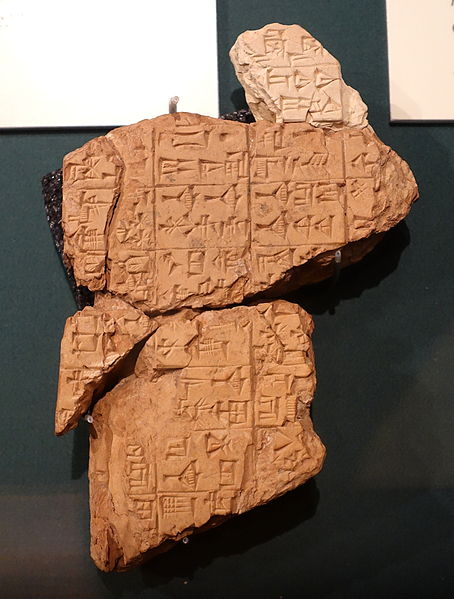Instructions of Shuruppak
The Instructions of Shuruppak are a significant example of Sumerian wisdom literature. Wisdom literature, intended to teach proper piety, inculcate virtue, and preserve community standards, was common throughout the ancient Near East. Its incipit sets the text in great antiquity by : "In those days, in those far remote times, in those nights, in those faraway nights, in those years, in those far remote years." The precepts are placed in the mouth of a king Šuruppak (SU.KUR.RUki), son of Ubara-Tutu. Ubara-Tutu is recorded in most extant copies of the Sumerian king list as being the final king of Sumer prior to the deluge. Ubara-tutu is briefly mentioned in tablet XI of the Epic of Gilgamesh, where he is identified as the father of Utnapishtim, a character who is instructed by the god Ea to build a boat in order to survive the coming flood. Grouped with the other cuneiform tablets from Abu Salabikh, the Instructions date to the early third millennium BCE, being among the oldest surviving literature.

Fragments of the Instructions of Shuruppak: "Shurrupak gave instructions to his son: Do not buy an ass which brays too much. Do not commit rape upon a man's daughter, do not announce it to the courtyard. Do not answer back against your father, do not raise a 'heavy eye.'". From Adab, c. 2600–2500 BCE
Shuruppak, modern Tell Fara, was an ancient Sumerian city situated about 55 kilometres (35 mi) south of Nippur and 30 kilometers north of ancient Uruk on the banks of the Euphrates in Iraq's Al-Qādisiyyah Governorate. Shuruppak was dedicated to Ninlil, also called Sud, the goddess of grain and the air.
Bill of sale Louvre AO3765
Pig-shaped rattle from Shuruppak, Iraq. Baked clay. Early Dynastic period, 2500-2350 BCE. Vorderasiatisches Museum, Berlin



